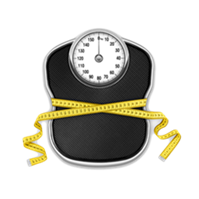Weight loss can affect your period in several ways, both positively and negatively. Rapid or significant weight loss, especially if it is due to crash dieting or an eating disorder, can disrupt the normal hormonal balance in the body, leading to changes in the menstrual cycle.
- Amenorrhea: Rapid or significant weight loss can lead to a condition called amenorrhea, which is the absence of menstrual periods. This can happen when the body’s fat stores fall below a certain level, leading to a disruption in the normal hormonal balance that regulates the menstrual cycle.
- Irregular Periods: Rapid or significant weight loss can also lead to irregular periods, which can be characterized by cycles that are shorter or longer than usual, or by periods that are lighter or heavier than normal. These changes can be caused by changes in the levels of estrogen, progesterone and other hormones that regulate the menstrual cycle.
- Eating Disorders: Rapid or significant weight loss, particularly if it is due to an eating disorder such as anorexia or bulimia, can also lead to changes in the menstrual cycle. Eating disorders can cause the body to become malnourished, which can lead to hormonal imbalances and changes in the menstrual cycle.
- Weight Loss Surgery: Some weight loss surgeries, such as gastric bypass or lap band surgery, can also affect the menstrual cycle. These surgeries can cause changes in the levels of hormones and can also affect the body’s ability to absorb nutrients, leading to changes in the menstrual cycle.
- Consult with a Professional: If you notice changes in your menstrual cycle after significant weight loss, it’s essential to speak to a doctor or a gynecologist. They can evaluate your overall health and determine the underlying cause of your menstrual changes. They can also recommend appropriate treatment options to address any hormonal imbalances or other underlying issues.
It’s worth noting that not all weight loss causes changes in the menstrual cycle, and many people lose weight without experiencing changes in their period. However, if you are experiencing changes in your menstrual cycle and suspect it may be related to weight loss, it’s important to speak with a healthcare professional to determine the cause and appropriate steps to take.
In summary, weight loss can affect your period in several ways, both positively and negatively. Rapid or significant weight loss, especially if it is due to crash dieting or an eating disorder, can disrupt the normal hormonal balance in the body, leading to changes in the menstrual cycle such as amenorrhea, irregular periods or changes due to eating disorders or weight loss surgery. It’s important to consult with a doctor or a gynecologist if you notice changes in your menstrual cycle after significant weight loss to determine the underlying cause and take appropriate steps to address it.







